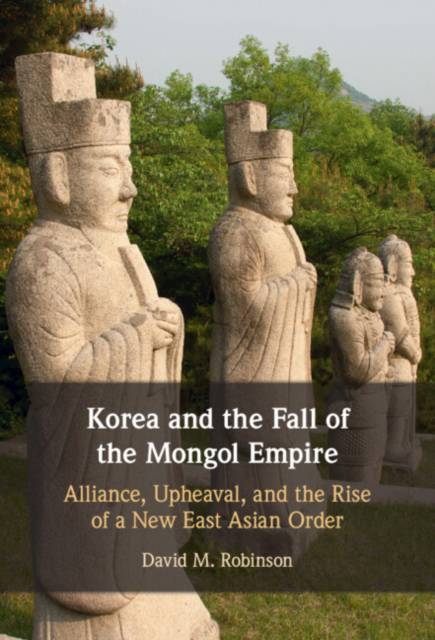
- Afhalen na 1 uur in een winkel met voorraad
- Gratis thuislevering in België vanaf € 30
- Ruim aanbod met 7 miljoen producten
- Afhalen na 1 uur in een winkel met voorraad
- Gratis thuislevering in België vanaf € 30
- Ruim aanbod met 7 miljoen producten
Zoeken
Korea and the Fall of the Mongol Empire
Alliance, Upheaval, and the Rise of a New East Asian Order
David M Robinson
Hardcover | Engels
€ 144,45
+ 288 punten
Omschrijving
Korea and the Fall of the Mongol Empire explores the experiences of the enigmatic and controversial King Gongmin of Goryeo, Wang Gi, as he navigated the upheavals of the mid-fourteenth century, including the collapse of the Mongol Empire and the rise of its successors in West, Central, and East Asia. Drawing on a wealth of Korean and Chinese sources and integrating East Asian and Western scholarship on the topic, David Robinson considers the single greatest geopolitical transformation of the fourteenth century through the experiences of this one East Asian ruler. He focuses on the motives of Wang Gi, rather than the major contemporary powers, to understand the rise and fall of empire, offering a fresh perspective on this period of history. The result is a more nuanced and accessible appreciation of Korean, Mongolian, and Chinese history, which sharpens our understanding of alliances across Eurasia.
Specificaties
Betrokkenen
- Auteur(s):
- Uitgeverij:
Inhoud
- Aantal bladzijden:
- 327
- Taal:
- Engels
Eigenschappen
- Productcode (EAN):
- 9781009098960
- Verschijningsdatum:
- 31/03/2022
- Uitvoering:
- Hardcover
- Formaat:
- Genaaid
- Afmetingen:
- 152 mm x 229 mm
- Gewicht:
- 594 g

Alleen bij Standaard Boekhandel
+ 288 punten op je klantenkaart van Standaard Boekhandel
Beoordelingen
We publiceren alleen reviews die voldoen aan de voorwaarden voor reviews. Bekijk onze voorwaarden voor reviews.











